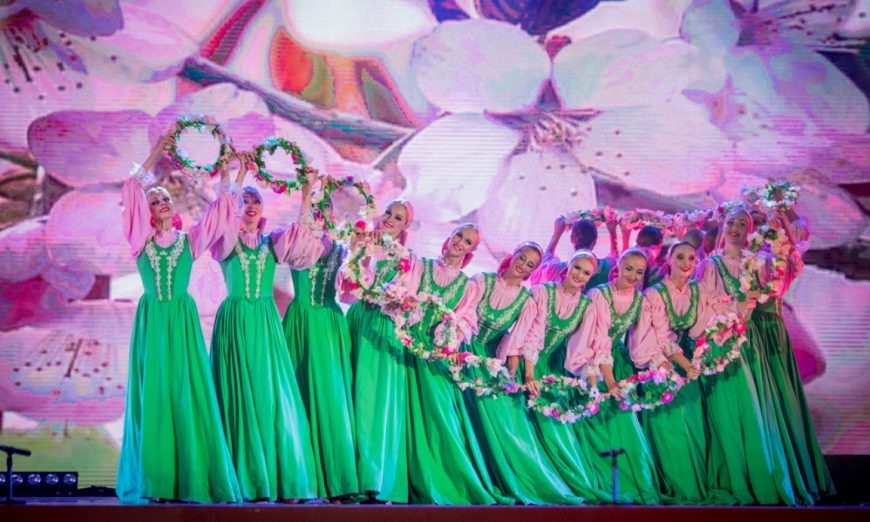There is a strong tradition of Indian studies in Russia. Jawaharlal Nehru Cultural Centre at the Embassy of India, Moscow (JNCC) maintains close cooperation with leading Russian institutions which includes the Institute of Philosophy (Moscow), Russian State University for Humanities(Moscow), Institute of Oriental Studies(Moscow), Institute of Asian and African Studies at the Moscow State University, School of International Relations at the St. Petersburg University, Institute of Oriental Manuscripts (St Petersburg), Peter the Great Museum of Anthropology & Ethnography (Kunstkamera)- St Petersburg, Far Eastern Federal University (Vladivostok)and Russian Institute for Cultural Research (Krasnodar). There is a Mahatma Gandhi Chair on Indian Philosophy at the Institute of Philosophy in Moscow. About 20 Russian Institutions including leading universities and schools regularly teach Hindi to 1500 Russian students. Apart from Hindi, languages such as Tamil, Marathi, Gujarati, Bengali, Urdu, Sanskrit and Pali are taught in Russian Institutions. There is general interest among Russian people in Indian dance, music, Yoga and Ayurveda. JNCC conducts classes in yoga, dance, music and Hindi for approximately 500 students every month.

For years, Russia and India have maintained warm, time-tested relations. Russia is one of the main political, strategic and economic partners for India. However, not only business partnership binds India and Russia, but also something more – indestructible friendship.
The manifestation of deep interest in the traditions and culture of India from the Russian people takes the relations of the two countries to a new level, making them even stronger.
The first festival of India in Russia took place in 1987.
After 30 years, the festival is repeated again and is already becoming a common tradition. In the modern world, Indian dances and music, Indian cinema and food, yoga and much more are gaining great popularity.
In 2018, the Indian festival invites guests to their sites in 22 cities of Russia.
Festival of India
Festival of India is being organized in Russia from September 2018 to March 2019. It was in 1987 that such a festival called “Apna Utsav” was organized last time. People of Russia still remember that festival and high artistic skills of Indian performers.
The festival will embrace 22 cities across the length and breadth of Russia. It will showcase the traditional vibrancy and diversity of the Indian culture woven in a flavor of fusion and modern technology. It is an incarnation of privileged, time-tested friendship between Russia and India.
58 main artists, along with their troupes belonging to different performing arts from India will be performing in multiple cities of Russia – Moscow, St.Petersburg, Nizhny Novgorod, Kazan, Ufa, Samara, Grozny, Sochi, Kaliningrad, Vladivostok, Rostov on Don, Astrakhan, Volgograd, Arkhangelsk, Khabarovsk, Novosibirsk, Irkutsk and Ulan Ude.
The series of events planned under the Festival include performances of Indian classical dances, contemporary Indian dance and music, Indian films, food festivals and art exhibitions. 11 incoming cultural delegations will perform at 31 venues in 22 cities spread across Russia.
A grand opening of the Festival of India took place on September 6, 2018 at the Kremlin Palace Theatre.
Russian Folk Festival “Maslenitsa” 2019
The traditional annual celebration of the Russian Folk Festival “Maslenitsa” was organised by the Indian Association of Russian Compatriots and Institute of Russian Language of the RCSC with the support of the Government of the Moscow and Russian Embassy at the Russian Centre of Science and Culture in New Delhi.
The central event of the colourful ceremony of saying farewell to winter and welcoming spring was the performance of the Russian ensemble Grad-Quartet from St. Petersburg, winner of many prestigious international and All-Russian competitions, winner of the Grand Prix of the international competition CITTA DI LANCIANO (Lanciano, Italy). In the best traditions of ensemble performance and tendencies of modern Russian musical culture, the team performed musical compositions of world popular, classical and opera music in their own arrangement using Russian folk instruments. Their fiery performance did not leave any of the guests indifferent.
The performance of Grad-Quartet was followed by an interesting creative program by students of the Russian Language Institute of the RCSC and other Delhi educational institutions who performed Russian folk and modern songs and dances in Russian national costumes.
Celebrations of Maslenitsa in accordance with Russian folk customs were accompanied by fascinating amusements: round dances, outdoor games – tug-of-war, a merry-go-round, cheerful folk songs and dances. The culmination of the festivities in the RCSC was the burning of the stuffed winter doll, symbolizing the triumph of spring, youth and beauty.
At the end of the program, the guests of the festival with great pleasure tried the traditional dishes of Russian cuisine – delicious pancakes, cakes with various fillings, as well as all kinds of sweet treats.

